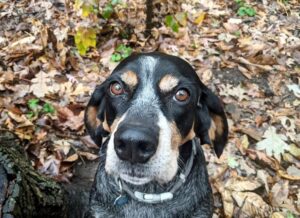
In February 2022, representatives from the Food and Drug Administration (FDA) issued Primal Pet Foods with a warning letter after inspecting its Fairfield manufacturing facility in California in July 2022 due to Listeria monocytogenes being detected in Raw Frozen Primal Patties for Dogs Beef Formula products manufactured at that facility.
FDA’s inspection uncovered evidence of significant violations to its Current Good Manufacturing Practice, Hazard Analysis, and Risk-Based Preventive Controls for Animal Food regulations under Title 21 CFR Part 507 which caused Primal Pet Foods’ products to be adulterated as reported in their warning letter.
FDA officials stated during their inspection of Primal Pet Foods that 49 products manufactured between August 2021-2022 tested positive for Listeria monocytogenes or Salmonella spp.
Primal responded to the findings by declaring it would no longer rely on supplier approval and outbound microbiological testing as preventive controls against pathogens, instead using frozen product preventive controls like probiotic inclusion for freeze-dried products and supplier approval as supporting prerequisite programs instead of preventive controls; finished product microbiological testing has now become verification activity; additionally a sanitation preventive control has been added as well as training will be offered on new procedures.
However, the FDA was unable to evaluate Primal’s corrective actions properly since Primal failed to provide enough documentation showing they have been fully implemented and successfully completed.
The FDA letter also highlighted additional issues with Primal Pet Foods’ response to their agency observations.
Primal Pet Foods Warning Letter
The FDA’s Current Good Manufacturing Practice (CGMP), Hazard Analysis, and Risk-Based Preventive Controls for Food for Animals regulation is designed to ensure animal food is safe for consumption and helps prevent foodborne illness in animals that could potentially spread through their own waste to humans who consume animal products.
The CGMP regulations mandate that animal food manufacturers follow specific procedures when producing, storing and distributing animal feed products. These include maintaining facilities in an hygienic state while using equipment which has been carefully maintained and cleaned as well as taking steps to avoid contamination during production and storage processes.
Hazard Analysis and Risk-Based Preventive Controls (HARPC) regulation requires animal food manufacturers to identify potential hazards associated with their products, and implement safeguards to avoid or minimize them. This may require creating a written food safety plan outlining these potential threats as well as steps taken to control them.
As part of the HARPC rule, manufacturers are also required to periodically review their food safety plans in order to make sure that they remain effective and up-to-date.
Overall, the CGMP and HARPC regulations play an essential role in ensuring animal food manufacturers produce and distribute it in an ethical and sanitary fashion. By adhering to these rules, animal food manufacturers can help prevent foodborne illness in both animals and humans alike.




